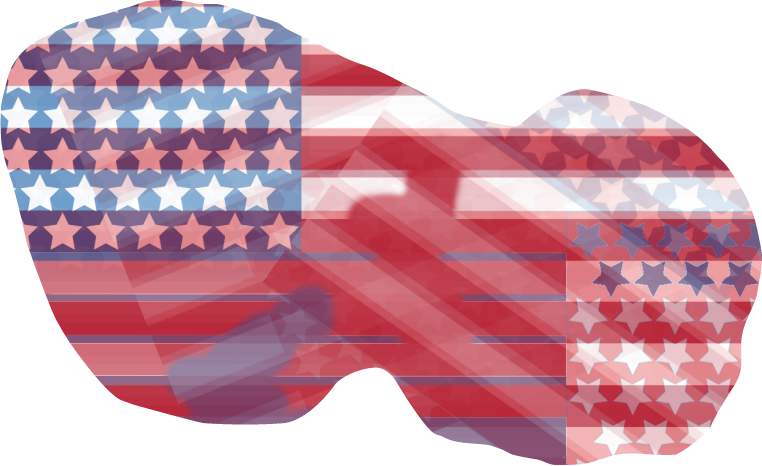I admit it. I’m fond of fake news and loathe looking at reality. By “reality” I mean the world described by an unidentified White House aide in 2004. Ron Suskind wrote in The New YorkTimes:
“The aide said that guys like me were ‘in what we call the reality-based community,’ which he defined as people who ‘believe that solutions emerge from your judicious study of discernible reality.’ I nodded and murmured something about enlightenment principles and empiricism. He cut me off. ‘That's not the way the world really works anymore,’ he continued. ‘We're an empire now, and when we act, we create our own reality. And while you're studying that reality -- judiciously, as you will -- we'll act again, creating other new realities, which you can study too, and that's how things will sort out. We're history's actors . . . and you, all of you, will be left to just study what we do.’"
While some consider news in media organizations like The New York Times, The Washington Post, NPR and the BBC to be fake, I consider them to be reality based and factual. Since news is reported similarly by different such “fake news” organizations, I can’t believe that their news is untrue. There are too many organizations are involved to sustain a conspiracy. Further, these organizations identify their information sources and attempt to present all sides of various issues.
Ron Suskind’s article addressed a faith based presidential administration. He wrote:
“The faith-based presidency is a with-us-or-against-us model that has been enormously effective at, among other things, keeping the workings and temperament of the Bush White House a kind of state secret.”
Suskind did not call it an untruthful administration, but in retrospect it is now known that the United States declared war on Iraq over weapons of mass destruction that were never proven or found. When her husband presented a fact-based correction, CIA agent, Valerie Plame's covert identity was revealed by someone in the Bush administration. This after-the-fact action can only be seen as pure spitefulness.
I have no problem with having faith, as long as that faith is tempered with facts and logic — however the Bush administration wasn’t tarnished by the president’s faith, but by its lack of truthfulness.
The Washington Post claims Donald Trump lied to or misled the public over 30,000 times during his four years as president.That kind of untruthfulness sets a bad example for like-minded partisans. During the recent Republican convention speakers fibbed freely. Here are some examples:
On the opening night of the Republican National Convention, Nikki Haley said of Democrats, “They want massive tax hikes on working families.” In reality, Biden’s tax proposals would increase taxes on the top one percent of earners not on the majority of earners who earn far less. Those who would receive the higher tax burden make up the same one percent of earners who benefited from the Tax Cuts and Jobs Act of 2017.
On the second day Kari Lake said of her opponent, “Just last week, Ruben Gallego voted to let the millions of people who poured into our country illegally cast a ballet in this upcoming election.” Gallego had voted against a law that would require proof of citizenship when registering to vote. Such a bill would create obstacles to voter registration for many potential voters. Proving citizenship would likely require a birth certificate, a document few keep handy, should they actually own a copy. Immigrants who become naturalized citizens receive certificates of citizenship. Those born here do not.
It is illegal for non-citizens to vote and there is sparse evidence of immigrants risking deportation by doing so, yet Ted Cruz claimed that illegal immigration, “happened because Democrats cynically decided they wanted votes from illegals more than they wanted to protect our children.” Cruz provided no supporting evidence for this claim, perhaps because there isn’t any.
On the convention’s third day, JD Vance said, “Joe Biden is willing to buy energy from tinpot dictators but not hard-working Americans right here at home.” The New York Times labeled this statement false adding that a record breaking amount of crude oil was produced here in 2023.
I could provide more examples but instead I’d like to return to the idea that a lying leader encourages others to lie as well. Exaggerated claims have long played a part in politics, but the current trend of speaking outright lies instead of facts is new to this country. It’s dangerous to think that when an empire acts it creates its own reality. Such thinking ignores external realities such as climate change or foreign wars. Totalitarian regimes try to control what information their peoples receive. Do Republicans seek totalitarianism?
On July 27, Donald Trump, after noting that Christians are, “not big voters,” said,
“Christians, get out and vote. Just this time. You won’t have to do it anymore, you know what? Four more years, it’ll be fixed, it’ll be fine, you won’t have to vote anymore, my beautiful Christians.”
His campaign spokesman, Steven Cheung, explained,
“President Trump was talking about uniting this country and bringing prosperity to every American, as opposed to the divisive political environment that has sowed so much division and even resulted in an assassination attempt.”
As far as that goes: 1) Trump’s economic plan of high tariffs and tax cuts for the rich would make life miserable for average Americans, 2) The FBI hasn’t established a motive, so the assumption that divisive politics resulted in an assassination attempt isn’t justified, 3) about that divisiveness … Most of the name calling has come from the right, not the left, so how exactly does Trump and his party plan to unite the country? Calling Democrats ‘Communists’ and immigrants ’rapists’ is both untruthful and unjustified. Name calling can’t promote unity.




















